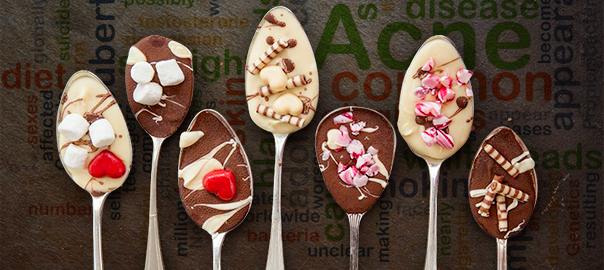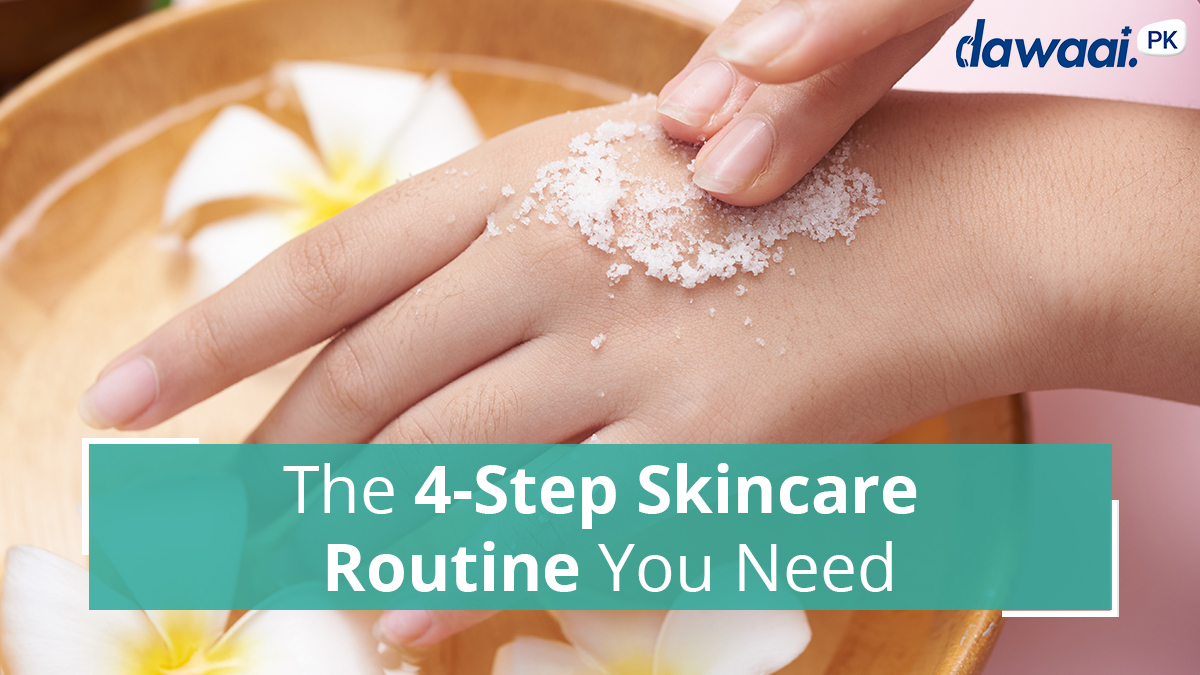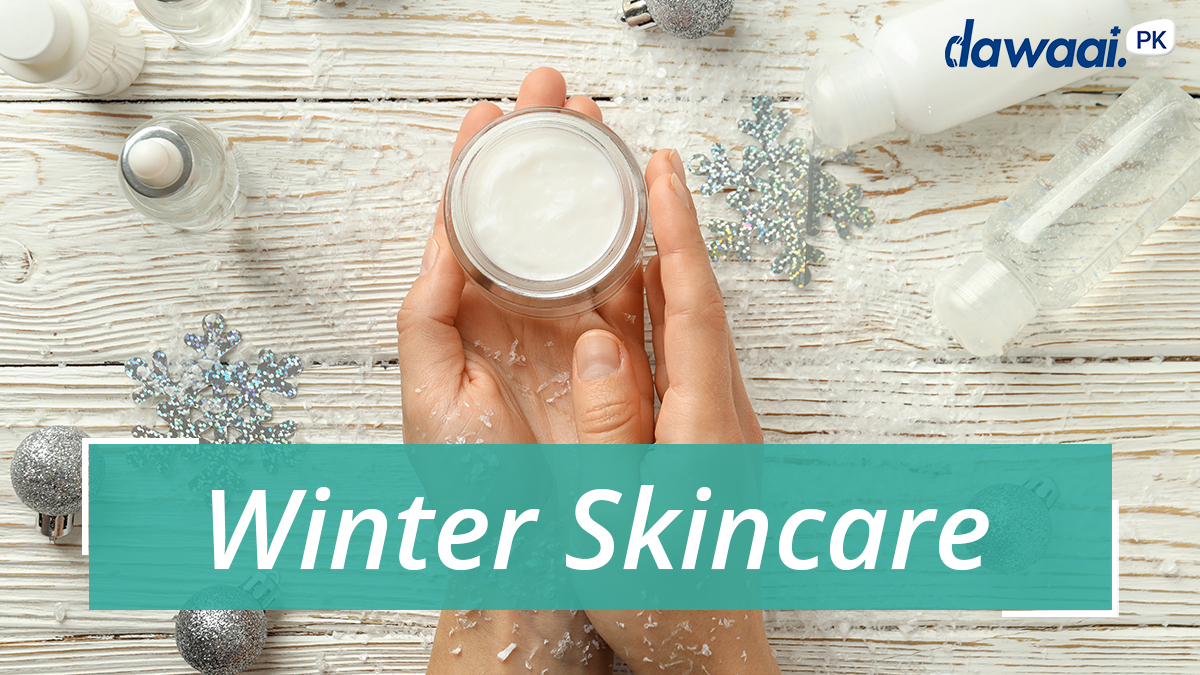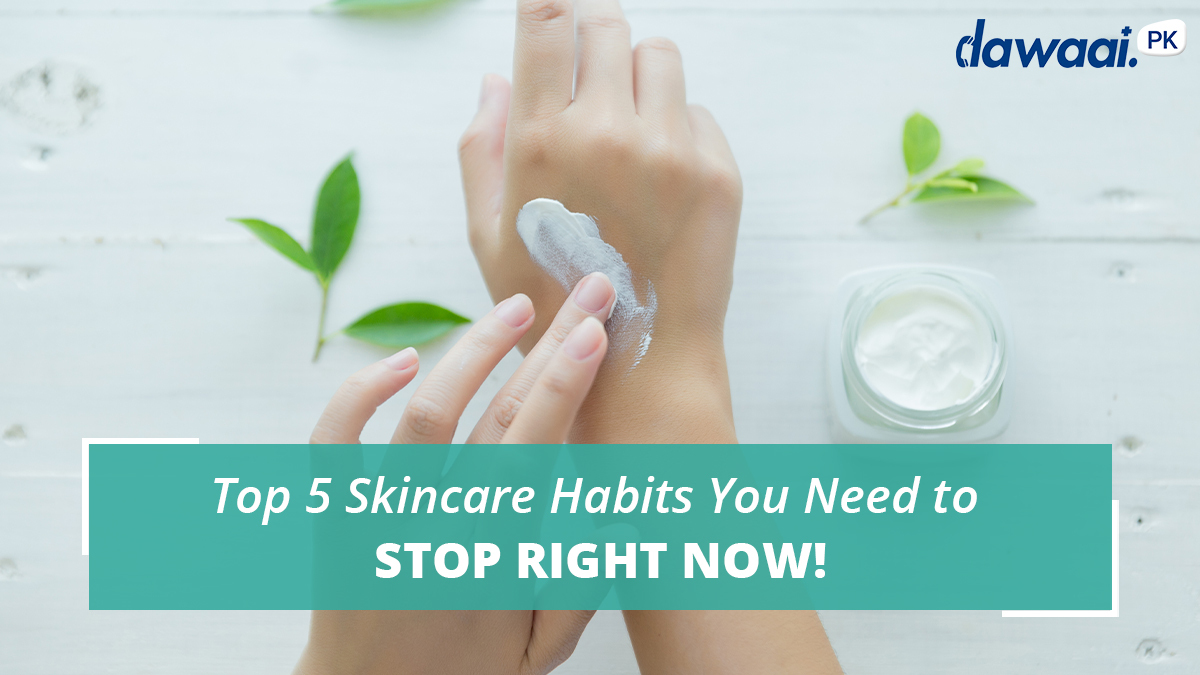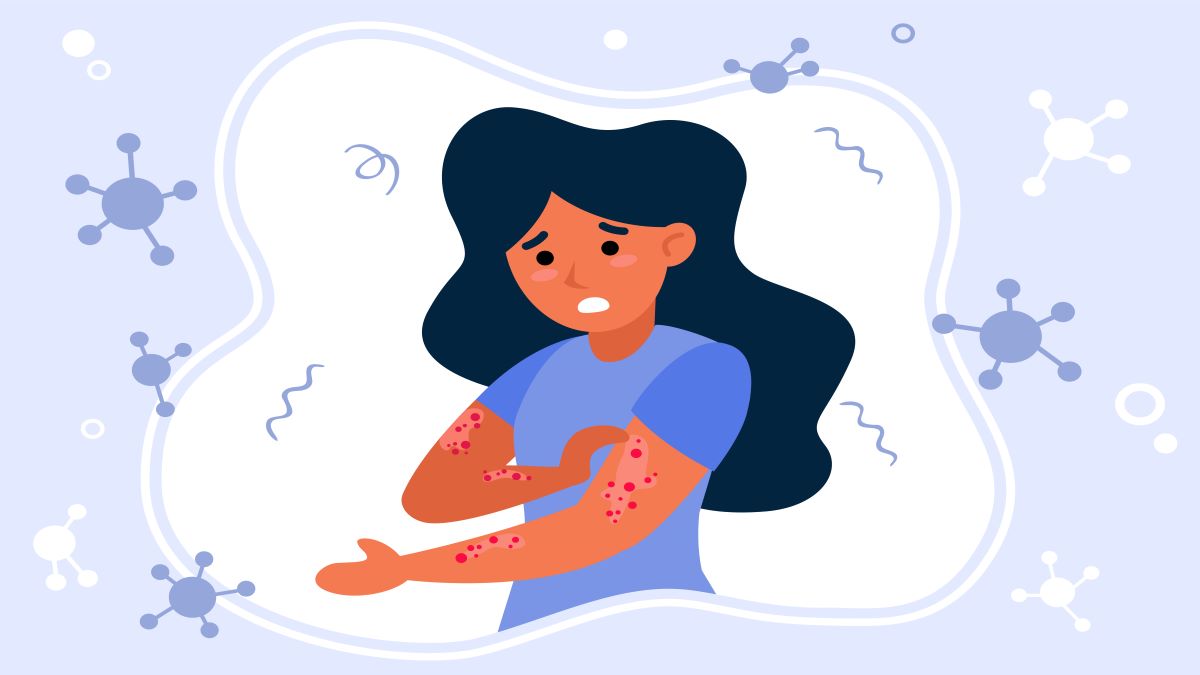Medically reviewed by Dr. Unsa Mohsin.
Acne is a common skin condition that affects nearly 10% of the world’s population. Many factors contribute to the development of acne, including sebum and keratin production, acne-causing bacteria, hormones, blocked pores and inflammation. The link between diet and acne has been controversial, but recent research shows that diet can play a significant role in acne development.
This article will review foods that can cause acne and discuss why the quality of your diet is important.
1. Refined Grains and Sugars
People with acne tend to consume more refined carbohydrates than people with little or no acne.
Foods rich in refined carbohydrates include:
- Bread, crackers, cereal or desserts made with white flour
- Pasta made with white flour
- White rice and rice noodles
- Sodas and other sugar-sweetened beverages
- Sweeteners like cane sugar, maple syrup, honey or agave
Eating lots of refined carbohydrates may increase blood sugar and insulin levels and contribute to the development of acne. However, more research is needed.
2. Dairy Products
Many studies have found a link between milk products and acne severity in teenagers. Frequently consuming dairy products is linked to increased acne severity, but it is uncertain whether there is a cause and effect relationship. One reason dairy may contribute to acne is because it promotes insulin-like growth factor 1.
3. Fast Food
Fast food items, such as burgers, nuggets, hot dogs, French fries, sodas and milkshakes, are mainstays of a typical Western diet and may increase acne risk. It is unclear why eating fast food may increase the risk of developing acne, but some researchers propose that it may affect gene expression and alter hormone levels in a way that promotes acne development.
4. Chocolate
Exactly why chocolate might increase acne is unclear, although one study found that eating chocolate increased the reactivity of the immune system to acne-causing bacteria, which may help explain these findings. While recent research supports a link between chocolate consumption and acne, it remains unclear whether chocolate actually causes acne.
5. Whey Protein Powder
Whey protein is a popular dietary supplement. It is a rich source of the amino acids Leucine and glutamine. These amino acids make skin cells grow and divide more quickly, which may contribute to the formation of acne. In fact several case studies have reported a link between whey protein consumption and acne in male athletes.
What to Eat Instead.
1. CROWD YOUR PLATE WITH FRESH FRUITS AND VEGETABLES
These foods are rich in vitamins and antioxidants. Fill up of these foods to make less room for foods that make you break out.
2. FLUSH OUT TOXINS
Reduce sugary cravings by drinking plenty of water or unsweetened tea.
Stir two teaspoons of apple cider vinegar into a glass of water and drink after a rich meal if you need balance your blood sugar levels.
3. MORE NATURAL VITAMIN A
Keep spinach, carrots, kale, papaya, cantaloupe and sweet potatoes on your menu.
Vitamin A reduces sebum and helps skin cells regenerate.
4. EAT DARK CHOCOLATE
That’s right – snacking on dark chocolate is a great antioxidant boost.
Cocoa contains antioxidants, which can help to fight free radicals in your skin.
5. LOAD UP ON NATURAL VITAMIN C
Citrus fruits, broccoli and bean sprouts are high in vitamin C and should be on your plate.
Vitamin C helps your skin produce collagen for a fresh complexion
6. FILL UP ON OMEGA-3 AND OMEGA-6
Think salmon, avocados, nuts and olive oil.
These unsaturated fatty acids help keep your skin supple.
The Bottom Line
While research has linked certain foods to an increased risk of developing acne, it is important to keep the bigger picture in mind. Overall dietary patterns are likely to have a larger impact on skin health than eating any one particular food. The research on diet and acne is not strong enough to make specific dietary recommendations at this time, but future research is promising. In the meantime, it may be beneficial to keep a food log to look for patterns between the foods you are eating and the health of your skin.
Guest Credits: Dr Shayan Imran
